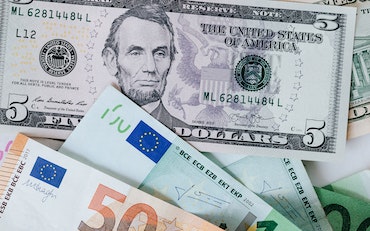
A depreciating currency refers to a situation in which the value of a country’s currency decreases in relation to another country’s currency or a basket of currencies. This means that it takes more units of the depreciating currency to buy the same amount of goods or services that could have been purchased for fewer units of currency before the depreciation.
There are several reasons why a currency might depreciate, including:
- Lower interest rates: If a country’s central bank lowers interest rates, this can make its currency less attractive to foreign investors seeking higher returns on their investments, causing the currency to depreciate.
- High inflation: When a country experiences high inflation, its currency loses value over time as prices rise. This can lead to a depreciation of the currency in relation to other currencies.
- Political instability: Political unrest or uncertainty can cause investors to lose confidence in a country’s economy, leading them to sell off its currency and causing its value to decrease.
- Current account deficit: If a country imports more goods and services than it exports, it may have a current account deficit. This can put pressure on the country’s currency to depreciate as it needs to be sold in order to pay for the imported goods and services.
A depreciating currency can have both positive and negative effects on a country’s economy. On the one hand, it can make a country’s exports cheaper and more competitive, which can boost its economic growth. On the other hand, it can make imports more expensive, leading to inflation and potentially hurting the purchasing power of consumers.